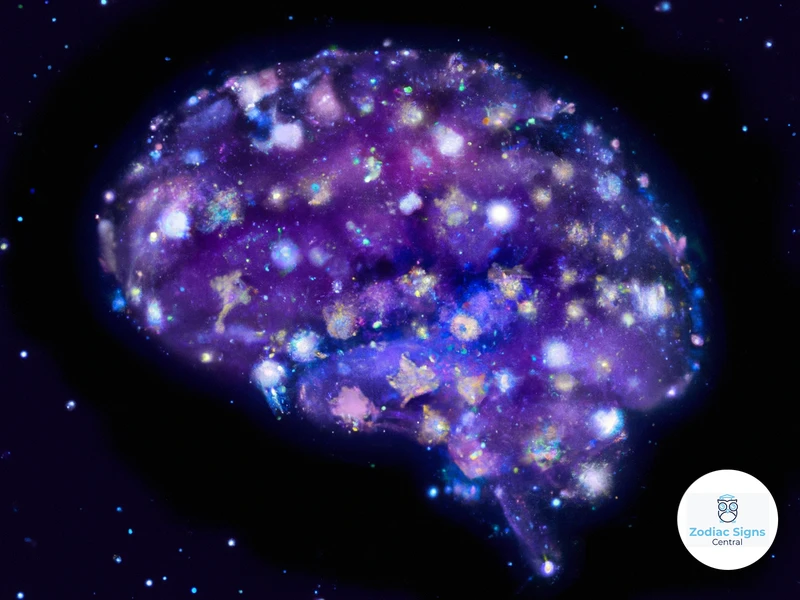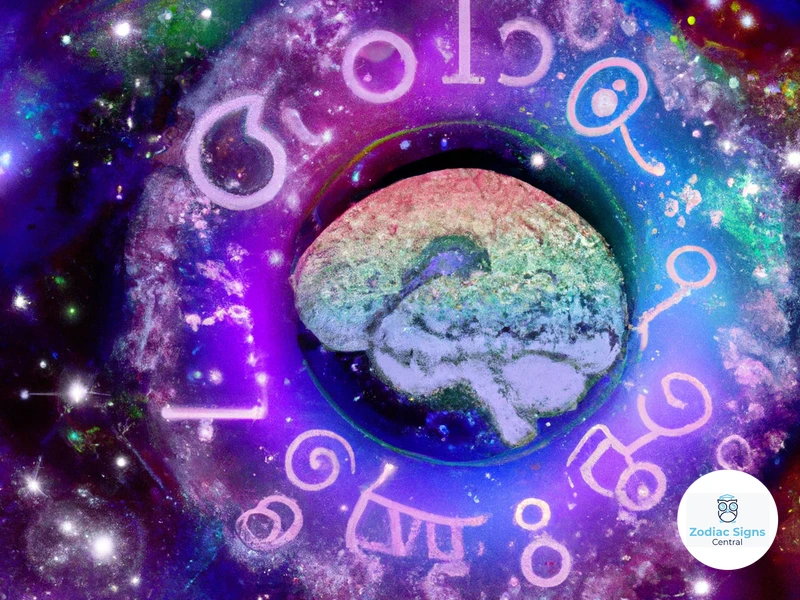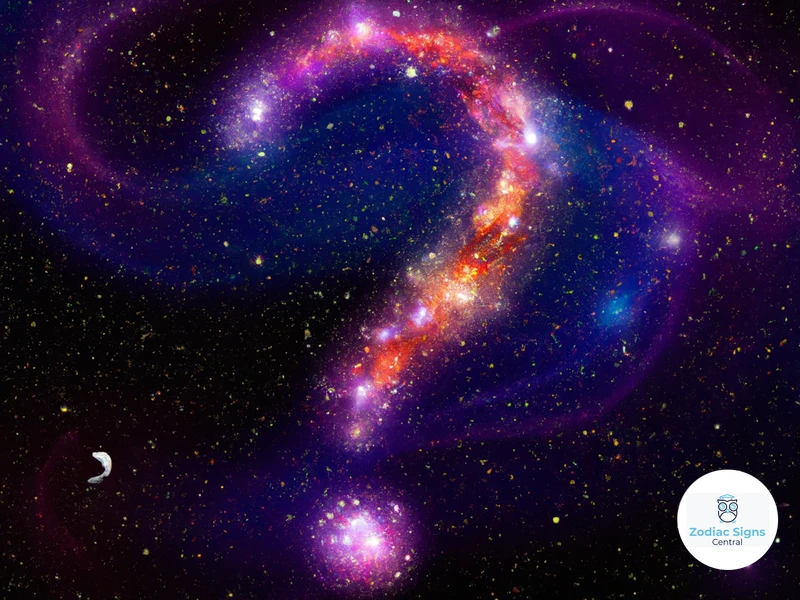For centuries, humans have sought insightful ways to understand and navigate their emotions. One unconventional yet fascinating approach is the study of astrology. Astrology, with its intricate system of planetary movements and zodiac signs, offers a unique lens through which to explore our emotional intelligence. It explores how the alignment of celestial bodies at the time of our birth may influence our emotional tendencies and behaviors. In this article, we delve into the connection between astrology and emotional intelligence, exploring how astrology can enhance our self-awareness, empathy, and emotional regulation. We will also examine the scientific perspectives on astrology and provide practical tips for incorporating astrology into our daily lives. So, let us embark on this intriguing journey into the intersection of astrology and emotional intelligence.
What is Emotional Intelligence?

Emotional intelligence refers to our ability to recognize, understand, and manage our own emotions, as well as to empathize with and navigate the emotions of others. It encompasses a range of skills, including self-awareness, self-regulation, empathy, and effective communication. When we are emotionally intelligent, we are better equipped to handle stress, build positive relationships, and make sound decisions. It involves being in tune with our feelings and using that awareness to guide our actions and interactions. Emotional intelligence is not fixed; it can be developed and improved over time through self-reflection, practice, and learning. By honing our emotional intelligence, we can lead more fulfilling lives and achieve greater success in various aspects, such as relationships, career, and personal growth. Understanding emotional intelligence is crucial for recognizing our strengths and areas for growth. It allows us to harness our emotional intelligence to positively impact our lives and those around us. For more information on utilizing the power of astrology for personal growth and success, you can explore the article on harnessing the zodiac power for success. Implementing astrology into self-care practices can also be beneficial; to learn more about holistic approaches, check out our article on astrology and self-care. Additionally, the effect of planetary transits, such as Uranus trine, can bring opportunities for change and transformation. To gain insights into this specific aspect, you may find our article on Uranus trine and its transits helpful.
The Basics of Astrology
Astrology is a complex system that seeks to understand the influence of celestial bodies, such as planets and stars, on human behavior and destiny. It is based on the belief that the positions and movements of these celestial bodies at the time of a person’s birth can reveal important insights into their personality traits, strengths, weaknesses, and life events. The fundamental building block of astrology is the zodiac, which consists of twelve signs, each representing a specific personality archetype. The zodiac signs are further divided into four elements: fire, earth, air, and water. Fire signs (Aries, Leo, Sagittarius) are known for their passion, enthusiasm, and assertiveness. Earth signs (Taurus, Virgo, Capricorn) are grounded, practical, and dependable. Air signs (Gemini, Libra, Aquarius) are intellectual, social, and communicative. Water signs (Cancer, Scorpio, Pisces) are emotional, intuitive, and sensitive. Understanding the basics of astrology involves learning about the zodiac signs, their corresponding elements, and the unique characteristics associated with each. Additionally, the astrological birth chart, also known as the natal chart, plays a central role in astrology. This chart is a mathematical representation of the positions of celestial bodies at the time of a person’s birth and provides deeper insights into their personality traits, life purpose, and potential challenges. Mastering the basics of astrology can be a lifelong study, but even a basic understanding can offer valuable insights into ourselves and others.
Astrology and Understanding Emotions

Astrology provides a unique framework for understanding and interpreting human emotions. It suggests that the alignment of celestial bodies at the time of our birth can influence our emotional tendencies and expressions. By studying astrology, we can gain insights into the connection between celestial movements and our emotional experiences. One way astrology facilitates this understanding is through the concept of elements. There are four elements – fire, earth, air, and water – each associated with different emotional traits. Fire signs (Aries, Leo, Sagittarius) are known for their passionate and enthusiastic emotions, while earth signs (Taurus, Virgo, Capricorn) exhibit practicality and stability. Air signs (Gemini, Libra, Aquarius) are inclined towards intellectual and communicative emotions, while water signs (Cancer, Scorpio, Pisces) are known for their depth and sensitivity. In addition to the elements, astrology also attributes emotional expressions to each zodiac sign. Each sign possesses unique qualities and emotional energies that shape their way of relating to and expressing emotions. The natal chart, which is a map of the positions of planets at the exact moment of birth, offers a deeper understanding of our emotional awareness and patterns. By analyzing the natal chart, astrologers can shed light on our emotional strengths, challenges, and potential for growth. Through this exploration of elements, zodiac signs, and the natal chart, astrology provides valuable insights into our emotional landscape, allowing us to deepen our understanding of ourselves and others.
1. The Elements and Their Corresponding Emotional Traits
The elements in astrology play a significant role in understanding our emotional traits. There are four elements: fire, earth, air, and water. Each element is associated with specific emotional tendencies and qualities.
– Fire: Fire signs (Aries, Leo, Sagittarius) are passionate, enthusiastic, and dynamic. They possess intense emotions, and their feelings can ignite quickly. They are driven by their desires and are known for their boldness and spontaneity.
– Earth: Earth signs (Taurus, Virgo, Capricorn) are grounded, practical, and reliable. They tend to be stable and consistent in their emotions. They value security and work diligently to create a stable foundation. Earth signs are often associated with nurturing and providing support.
– Air: Air signs (Gemini, Libra, Aquarius) are intellectual, analytical, and communicative. They approach emotions with logic and rationality. Air signs value mental stimulation and rely on their thoughts and ideas to navigate their emotional experiences.
– Water: Water signs (Cancer, Scorpio, Pisces) are sensitive, intuitive, and deeply emotional. They navigate the depths of their emotions and are highly empathetic. Water signs are known for their emotional depth, creativity, and their ability to connect with others on an intuitive level.
Understanding the elements and their associated emotional traits provides valuable insights into how we may respond emotionally in different situations. It allows us to embrace and accept our emotional inclinations while also recognizing the potential challenges that may arise. By understanding the elemental qualities within ourselves and others, we can develop a greater understanding and empathy for the diverse range of emotional expressions.
2. The Zodiac Signs and Emotional Expressions
Understanding the zodiac signs can offer valuable insights into how individuals express and experience emotions. Each of the twelve zodiac signs has its unique emotional qualities and tendencies. Here are some examples of how different zodiac signs may express their emotions:
1. Aries (March 21 – April 19): Aries individuals tend to be passionate and quick-tempered. They may have a tendency to be assertive and direct in expressing their emotions. When they are happy, their enthusiasm shines through, but when they are upset, their anger and frustration can be intense.
2. Taurus (April 20 – May 20): Taurus individuals are known for their grounded nature and emotional stability. They tend to have a calm and steady approach to emotions. They may take their time to process their feelings and might not easily show their emotional side, but when they do, it is usually deep and enduring.
3. Gemini (May 21 – June 20): Geminis are known for their versatile and curious nature. They can have a wide range of emotions, and their expression might change frequently. They are skilled communicators and may express their emotions through talking and sharing their thoughts.
4. Cancer (June 21 – July 22): Cancer individuals are highly sensitive and empathetic. They tend to have deep emotional connections and may be prone to mood swings. They express their emotions through nurturing and providing support to others, as well as seeking comfort and security themselves.
5. Leo (July 23 – August 22): Leos are known for their dramatic flair and expressive nature. They may outwardly display their emotions with confidence and enthusiasm. They enjoy being the center of attention and may seek validation and recognition for their emotional expressions.
6. Virgo (August 23 – September 22): Virgos are practical and reserved when it comes to emotions. They tend to analyze their feelings deeply and may have a more rational approach to emotions. They might express their emotions through acts of service and attention to detail.
7. Libra (September 23 – October 22): Libras are all about balance and harmony. They seek fairness and may have a strong desire for peace in their emotional relationships. They express their emotions through diplomacy, seeking compromise, and ensuring everyone’s needs are met.
8. Scorpio (October 23 – November 21): Scorpios are intense and passionate individuals. They tend to hold their emotions close to their chest, but when they do express them, they can be intense and powerful. They value deep emotional connections and may express their emotions through loyalty and protectiveness.
9. Sagittarius (November 22 – December 21): Sagittarius individuals have a free-spirited and optimistic nature. They may express their emotions through humor and adventurousness. They tend to be straightforward and honest in their emotional expressions.
10. Capricorn (December 22 – January 19): Capricorns are known for their practicality and disciplined nature. They may have a reserved approach to emotions and prefer to display them in private rather than in public. They express their emotions through reliability, stability, and providing a sense of security.
11. Aquarius (January 20 – February 18): Aquarius individuals are independent and value their individuality. They may have a detached and intellectual approach to emotions. They express their emotions through their unique perspectives, innovative ideas, and a concern for the collective.
12. Pisces (February 19 – March 20): Pisces individuals are highly sensitive and intuitive. They may experience a wide range of emotions and have a strong connection to their inner world. They express their emotions through creativity, compassion, and empathy for others.
Understanding the emotional expressions of the zodiac signs can help us cultivate empathy and better connect with others, as we recognize and appreciate their unique ways of experiencing and expressing emotions.
3. The Natal Chart and Emotional Awareness
The natal chart, also known as the birth chart, is a crucial tool in astrology that can provide valuable insights into our emotional makeup and awareness. It is a snapshot of the sky at the exact moment of our birth and includes the positions of the planets, the Sun, the Moon, and the rising sign, among other elements. Each placement in the natal chart holds significance and can contribute to our emotional tendencies and patterns.
For example, the Moon’s placement in the natal chart represents our emotional needs and instincts. A person with a Moon in a fire sign like Aries may have a passionate and impulsive emotional nature, while someone with a Moon in a water sign like Cancer may be more intuitive and sensitive.
Another important component of the natal chart is the ascendant, or rising sign. This sign represents the image we project to the outside world and how we approach new situations. It can greatly influence our emotional expression and how we handle emotions in different environments.
By analyzing the natal chart, we can gain a deeper understanding of our emotional strengths and challenges, allowing us to cultivate greater self-awareness. It provides a map of our emotional landscape and can help us identify recurring patterns or tendencies that may need attention or healing. With this awareness, we can work on navigating our emotions more effectively and making conscious choices that align with our emotional well-being. The natal chart acts as a powerful tool for self-reflection and personal growth, aiding us in our journey towards emotional awareness and resilience.
How Astrology Can Enhance Emotional Intelligence
Astrology has the potential to enhance our emotional intelligence by providing valuable insights into our own emotions and those of others. Firstly, astrology promotes self-awareness by offering a deeper understanding of our unique personality traits, strengths, and weaknesses. By analyzing our birth chart, which is essentially a snapshot of the positions of celestial bodies at the time of our birth, we can gain valuable insights into our emotional tendencies and patterns. This self-awareness allows us to recognize and acknowledge our emotional triggers and helps us develop healthier ways of expressing and managing our emotions. Secondly, astrology encourages empathy and understanding towards others. By studying the zodiac signs and their corresponding emotional characteristics, we can better comprehend and empathize with different emotional expressions from people around us. This understanding promotes better communication and fosters harmonious relationships. Finally, astrology offers guidance for emotional regulation. By studying our natal chart and identifying the challenging aspects or transits, we can anticipate emotional challenges and prepare accordingly. Astrology provides tools and coping strategies to regulate our emotions in more productive and balanced ways. By embracing astrology, we can tap into its potential to enhance our emotional intelligence and lead more fulfilled and authentic lives.
1. Self-Awareness and Astrological Insights
Self-awareness is a fundamental aspect of emotional intelligence, as it involves recognizing our own emotions, strengths, weaknesses, and thought patterns. Astrology can provide valuable insights into our personality traits and emotional tendencies, enhancing our self-awareness. By analyzing our astrological birth chart, which maps the positions of celestial bodies at the time of our birth, we can gain a deeper understanding of ourselves. Each placement in our birth chart corresponds to specific personality traits and emotional patterns.
For example, our Sun sign represents our core essence and ego, while our Moon sign reveals our emotional needs and instincts. The placement of Venus symbolizes our approach to love and relationships, and Mars represents our assertiveness and drive. By studying these astrological placements, we can gain insights into our emotional strengths and challenges. This self-awareness allows us to recognize and acknowledge our emotions, which is crucial for effectively managing them.
Astrology provides us with a language to articulate and understand our emotions. It offers symbolic representations of different emotional experiences, allowing us to put words to our feelings. For instance, a person with a strong Scorpio influence in their chart might experience intense emotions and be deeply intuitive, while someone with an emphasis on air signs like Gemini may be more logical and communicative in their emotional expression. These astrological insights provide us with a framework to comprehend our emotional landscape and navigate it with greater clarity.
To develop self-awareness using astrology, it is important to study and reflect upon your birth chart, paying attention to the different placements and their corresponding emotional traits. Journaling about your emotional experiences and how they align with your astrological profile can also be helpful. Regular self-reflection and introspection, coupled with astrological insights, can deepen your understanding of your emotional intelligence and pave the way for personal growth and development.
2. Empathy and Understanding Others through Astrology
Astrology can also play a significant role in enhancing our empathy and understanding of others. Each zodiac sign is associated with distinct personality traits and emotional characteristics. By familiarizing ourselves with these traits, we can gain valuable insights into how different individuals may experience and express their emotions. For example, a fire sign like Aries is known for their passion and assertiveness, while a water sign like Cancer tends to be highly sensitive and nurturing. Understanding these fundamental emotional tendencies can help us approach others with empathy and compassion, as we can better grasp their unique perspectives and emotional needs. Astrology also provides us with a deeper understanding of the complex interplay between different signs and how they may affect relationships. By considering the compatibility between signs, we can navigate conflicts more effectively and foster stronger connections with those around us. Additionally, astrology offers a framework for understanding how planetary transits and aspects may influence our emotional landscape and that of others. These celestial events can bring about shifts in energy, which in turn may impact emotions and behaviors. By staying attuned to these cosmic influences, we can develop a greater appreciation for the emotional fluctuations experienced by ourselves and others. This heightened awareness allows us to respond with empathy, support, and understanding, fostering healthier and more harmonious relationships. So, astrology serves as a valuable tool for cultivating empathy and enhancing our ability to understand and connect with others on a deeper emotional level.
3. Emotional Regulation Using Astrological Guidance
Emotional regulation is an essential skill for managing our emotions effectively and maintaining a sense of balance and well-being. Astrology can provide valuable guidance in this aspect, helping us navigate and regulate our emotions more efficiently. By studying our natal charts, we gain insights into our emotional tendencies and patterns, as well as the potential challenges and opportunities we may encounter. Each placement of the planets in our chart represents different emotional energies and qualities that influence our emotional responses in various situations. For example, a strong placement of the Moon can indicate emotional sensitivity and intuition, while the placement of Mars may suggest assertiveness and drive. Understanding these astrological influences allows us to proactively work on emotional regulation by leveraging our strengths and addressing areas of improvement. By knowing our emotional triggers and tendencies, we can develop strategies to manage our responses in challenging situations. Astrological guidance can prompt us to reflect on how specific planetary transits or aspects may impact our emotions and provide tools for handling such energies. For instance, when facing a particularly challenging transit like Saturn square Mars, which may evoke frustration or anger, we can use astrology to prepare ourselves mentally and emotionally, practicing patience and finding constructive outlets for our emotions, such as physical activity or creative expression. Astrology acts as a supportive framework for understanding our emotional landscape, enabling us to cultivate healthier coping mechanisms and empowering us to respond to our emotions in balanced and productive ways. It should be noted, however, that while astrology can be a useful tool, it is not a substitute for professional guidance or therapy. It is always essential to seek appropriate support when facing significant emotional challenges or concerns.
Scientific Perspectives on Astrology and Emotional Intelligence

Scientific perspectives on astrology and emotional intelligence vary, with some researchers and scholars acknowledging the potential connections, while others remain skeptical. It is important to note that astrology is considered a pseudoscience by the scientific community, as it lacks empirical evidence and relies on subjective interpretations. Critics argue that any perceived correlations between astrological signs and emotional traits may be coincidental or simply a result of confirmation bias. They emphasize the need for rigorous scientific studies that can provide concrete evidence for the claims made by astrologers. Additionally, they point out that astrology often relies on vague and generalized descriptions, which can apply to a wide range of individuals. However, supporters of astrology argue that the impact of celestial bodies on human emotions and behavior cannot be dismissed entirely. They suggest that further exploration and research are needed to better understand the potential influence of astrology on emotional intelligence. Despite the lack of scientific consensus, many individuals find personal value and meaning in astrology, using it as a tool for self-reflection, introspection, and guidance. Ultimately, the debate between science and astrology continues, and individuals are encouraged to approach astrology with an open mind while also remaining critical and discerning in their interpretations.
Practical Tips for Applying Astrology to Emotional Intelligence
When it comes to applying astrology to enhance emotional intelligence, there are several practical tips to consider.
1. Daily Horoscope and Emotional Check-In: Start your day by reading your horoscope to gain insight into the astrological influences on your emotions. Use it as a tool to check in with yourself and become aware of any potential emotional challenges or opportunities for growth.
2. Studying Astrological Aspects and Emotional Triggers: Dive deeper into astrology by studying specific aspects and planetary placements that may have an impact on your emotional landscape. Understand how certain celestial alignments may trigger specific emotions and use this knowledge to better navigate and regulate your emotional responses.
3. Seeking Professional Astrological Guidance: Consider consulting with professional astrologers who specialize in emotional intelligence to gain personalized insights and guidance. They can provide a deeper understanding of your natal chart, planetary transits, and their effects on your emotions. Working with an astrologer can help you develop strategies to enhance your emotional intelligence and achieve a greater sense of self-awareness and emotional balance.
By incorporating these practical tips into your life, you can effectively apply astrology to enhance your emotional intelligence and lead a more fulfilled and harmonious existence.
1. Daily Horoscope and Emotional Check-In
1. Daily Horoscope and Emotional Check-In
One practical way to apply astrology to enhance emotional intelligence is by incorporating a daily horoscope into our routine. A daily horoscope offers insights and guidance based on the current positions of the planets and how they may influence our emotions. It provides a snapshot of the cosmic energy and can help us set the tone for our day.
Begin by reading your daily horoscope and reflecting on the astrological predictions for your zodiac sign. Pay attention to any emotions or themes that resonate with you. Are there any challenges or opportunities mentioned that might impact your emotional well-being? Take a moment to check in with yourself and assess how you are feeling emotionally.
Next, use your horoscope as a tool for self-reflection and self-awareness. Consider how the planetary alignments may be influencing your emotions and behaviors. Are there any patterns or triggers that can be observed? Are there any emotions that need your attention and exploration? By regularly engaging in this practice, you can develop a deeper understanding of your own emotional landscape.
It’s important to approach the daily horoscope with an open mind and take it as a guiding tool rather than a strict prediction. Remember that astrology offers possibilities and influences, but it doesn’t dictate our fate. Use your own discernment and intuition to interpret the information provided and apply it in a way that feels authentic to you.
Incorporating a daily horoscope and emotional check-in into your routine can help you become more attuned to your emotions and navigate them with greater awareness. It can also serve as a reminder to practice self-care and prioritize your emotional well-being. By consciously connecting with the cosmic energies through astrology, you can cultivate a stronger emotional intelligence and lead a more fulfilling life.
2. Studying Astrological Aspects and Emotional Triggers
Studying astrological aspects and emotional triggers can provide valuable insights into our own emotional landscape. Astrological aspects are the relationships between planets in our birth chart or in the current celestial alignments. Each aspect carries a unique energy and influences how different areas of our lives, including our emotions, unfold. By examining these aspects, we can gain awareness of the specific emotional triggers that may arise in certain situations.
One common aspect is the conjunction, where two planets are closely aligned. Conjunctions can intensify emotions related to the qualities of the involved planets. For example, a conjunction between the Moon and Mars may lead to heightened passion, assertiveness, and at times, even anger. Trines, on the other hand, indicate harmonious connections between planets. These aspects can create a sense of ease and flow in our emotions, allowing us to express our feelings in a balanced manner.
Squares, however, represent challenges and internal tension. They highlight areas of potential conflict and emotional friction. For instance, a square between Venus and Saturn might manifest as feelings of insecurity or difficulty in forming deep emotional connections. By studying these aspects in our birth charts, we can identify potential emotional triggers and work on developing strategies for self-regulation and emotional growth.
Using an html list, here are key points to remember when studying astrological aspects and emotional triggers:
- Astrological aspects show the relationships between planets in our birth chart or current celestial alignments.
- Conjunctions intensify emotions related to the involved planets’ qualities.
- Trines indicate harmonious connections that facilitate emotional balance.
- Squares represent challenges and potential emotional friction.
- Studying these aspects helps identify emotional triggers.
- Awareness of emotional triggers allows for self-regulation and personal growth.
By delving into the complexity of astrological aspects and their influence on our emotions, we can navigate our feelings with greater awareness and understanding. This knowledge empowers us to respond to emotional triggers in a more constructive way, fostering personal growth, and emotional well-being.
3. Seeking Professional Astrological Guidance
Seeking professional astrological guidance can be an invaluable step in deepening our understanding of astrology and its connection to emotional intelligence. A professional astrologer has extensive knowledge and experience in interpreting birth charts, planetary transits, and astrological aspects. They can provide personalized insights and guidance based on our unique astrological profile. When consulting with a professional astrologer, we have the opportunity to gain a more in-depth understanding of our emotions, psychological patterns, and potential emotional challenges. They can help us identify key astrological factors that may influence our emotional well-being and provide strategies for emotional regulation and growth. A professional astrologer can offer guidance on specific life events or transitions, such as career changes, relationship dynamics, or major decisions. Through their expertise, they can shed light on the potential emotional impact and provide tools for navigating these situations with emotional intelligence. It is important to find a reputable and qualified astrologer who resonates with us personally and aligns with our values. Recommendations from trusted sources or online reviews can help in selecting the right professional for our needs. Seeking professional astrological guidance allows us to deepen our astrological knowledge, gain valuable insights, and enhance our emotional intelligence in a personalized and meaningful way.
The Limitations and Skepticism Surrounding Astrology and Emotional Intelligence

While astrology and emotional intelligence offer intriguing possibilities for self-reflection and personal growth, it is important to acknowledge the limitations and skepticism that surround these subjects. Here are some key considerations:
1. Lack of Scientific Evidence: Many skeptics argue that astrology lacks scientific evidence to substantiate its claims. Critics argue that the positions of celestial bodies at the time of our birth have no direct influence on our personality traits or emotional intelligence. They assert that astrology relies on general statements that can be applied to anyone, known as the Forer effect or Barnum effect.
2. Subjectivity and Interpretation: Astrology relies heavily on interpretation, making it subjective in nature. Different astrologers may provide varying interpretations of the same birth chart or horoscope. This subjectivity can lead to ambiguity and disagreement, reducing confidence in astrology’s validity.
3. Overgeneralization: Skeptics argue that astrology tends to make broad generalizations about individuals based solely on their sun sign. This oversimplification ignores the complexity and uniqueness of each person’s individual experiences and upbringing, potentially leading to inaccurate conclusions about emotional intelligence.
4. Confirmation Bias: Confirmation bias is a cognitive bias that leads individuals to favor information that confirms their existing beliefs or assumptions. This bias can influence individuals who already have a favorable inclination towards astrology to interpret events and experiences as evidence of its accuracy, even when there may be alternative explanations.
5. Cultural and Historical Critiques: Astrology’s roots can be traced back to ancient civilizations, and critics argue that its practices have not evolved significantly since then. Skeptics question why astrology continues to rely on ancient concepts that are not supported by modern scientific understanding.
It is essential to approach astrology and emotional intelligence with a critical and discerning mindset. While some individuals find personal value and meaning in astrology, it is equally important to embrace a healthy amount of skepticism and consider alternative explanations and perspectives. Remember that everyone has a unique path towards self-discovery and personal growth, and astrology is just one tool among many that can enhance our understanding of emotions.
Conclusion
In conclusion, astrology offers a unique perspective on emotional intelligence, providing insights into our emotional tendencies and behaviors based on the alignment of celestial bodies at the time of our birth. By exploring the elements, zodiac signs, and natal charts, astrology can help us develop a deeper understanding of our emotions and how they impact our lives. Through self-awareness, empathy, and emotional regulation, astrology can enhance our overall emotional intelligence, leading to more fulfilling relationships, better decision-making, and personal growth. While astrology may not have a scientific foundation, many individuals find value in incorporating astrological practices into their daily lives to enhance their emotional well-being. It is important to approach astrology with an open mind and use it as a tool for self-reflection and personal growth rather than relying solely on its predictions. By combining the insights of astrology with our own critical thinking and self-reflection, we can deepen our understanding of ourselves and others, ultimately leading to a more emotionally intelligent and fulfilling life.
Frequently Asked Questions

1. Can astrology accurately predict someone’s emotional intelligence?
Astrology can provide insights into a person’s emotional tendencies and behaviors, but it cannot accurately predict an individual’s exact level of emotional intelligence. Emotional intelligence is influenced by various factors, including life experiences, upbringing, and personal development, which astrology alone cannot determine.
2. How can astrology help in developing self-awareness?
Astrology can help in developing self-awareness by providing a deeper understanding of one’s personality traits, strengths, and areas for growth. By studying our natal chart and analyzing the placement of planets, we can gain insights into our emotional patterns and tendencies, allowing us to become more self-aware of our emotions and reactions.
3. Can astrology help improve empathy towards others?
Astrology can enhance empathy towards others by providing a framework for understanding different personality types and their emotional needs. By studying the zodiac signs and their characteristics, we can develop a greater appreciation for the diversity of emotional expressions, increasing our empathy and understanding towards others.
4. Is astrology a scientifically proven method for understanding emotions?
Astrology is not considered a scientifically proven method for understanding emotions. It is important to approach astrology with an open mind, recognizing it as a belief system and a tool for self-reflection. While astrology may resonate with individuals and provide valuable insights, its principles are not universally accepted in the scientific community.
5. Can astrology help regulate emotions during challenging times?
Astrology can provide guidance and support in regulating emotions during challenging times. By studying transits and aspects in astrology, we can anticipate periods that may bring emotional intensity and learn how to navigate them effectively. It can offer coping strategies and a sense of perspective, helping us regulate our emotions with greater ease.
6. Is it necessary to consult a professional astrologer for emotional guidance?
While it is not necessary, consulting a professional astrologer can provide deeper insights into the connection between astrology and emotional intelligence. A professional astrologer can offer personalized guidance, interpretation, and recommendations based on your unique natal chart, helping you gain a more comprehensive understanding of your emotions.
7. Can astrology help in improving communication skills?
Astrology can indirectly help improve communication skills by enhancing self-awareness and empathy. By understanding our own emotional needs and recognizing the emotional needs of others, we can tailor our communication style accordingly, leading to more effective and empathetic interactions with others.
8. Can astrology provide guidance for personal growth and development?
Astrology can serve as a valuable tool for personal growth and development. By exploring our natal chart, astrology can shed light on our strengths, challenges, and life lessons. It can provide a roadmap for self-improvement, helping us make conscious choices and navigate our emotional landscape with greater insight and understanding.
9. Can astrology help in understanding relationship dynamics?
Astrology can offer insights into relationship dynamics by analyzing the compatibility of two individuals’ natal charts. By studying the astrological aspects and synastry between two people, astrology can provide a deeper understanding of the emotional dynamics at play in relationships and offer guidance for fostering healthier connections.
10. What is the role of astrology in managing stress and anxiety?
Astrology can play a supportive role in managing stress and anxiety by providing guidance on how to navigate challenging planetary transits and aspects. By understanding astrological patterns, we can anticipate periods that may be more emotionally charged, allowing us to proactively implement self-care practices and coping strategies to manage stress and anxiety effectively.
References
Frequently Asked Questions

Can astrology really help enhance emotional intelligence?
Astrology can provide valuable insights into our emotional patterns and behaviors, which can in turn enhance our emotional intelligence. By understanding the astrological influences on our personalities and emotions, we can gain a deeper self-awareness and develop strategies for emotional regulation.
How does astrology classify different emotional traits?
Astrology classifies different emotional traits based on the elements and zodiac signs. The elements (earth, air, fire, and water) represent different emotional energies, while the zodiac signs represent distinct emotional expressions.
What role does the natal chart play in emotional awareness?
The natal chart, also known as the birth chart, provides a detailed snapshot of the planetary positions at the time of our birth. By analyzing the natal chart, astrologers can identify the emotional strengths, challenges, and patterns that shape our emotional awareness.
How can astrology enhance self-awareness?
Astrology can enhance self-awareness by revealing our unique emotional tendencies, strengths, and areas for growth. By understanding our astrological influences, we can gain insight into our emotional triggers, needs, and patterns, leading to a deeper understanding of ourselves.
Can astrology help us understand and empathize with others?
Astrology can help us understand and empathize with others by providing insights into their emotional makeup. By analyzing their natal charts, we can gain an understanding of their emotional needs, triggers, and communication styles, fostering empathy and promoting successful relationships.
How can astrology aid in emotional regulation?
Astrology can aid in emotional regulation by providing guidance on how to navigate and manage our emotions more effectively. By recognizing the astrological influences on our emotional responses, we can develop strategies for self-soothing, emotional balance, and conflict resolution.
Are there scientific perspectives on astrology and emotional intelligence?
While astrology is not considered a scientific field, some studies have explored its potential impact on emotional intelligence. However, it is important to approach these perspectives with an open mind and recognize astrology as a complementary tool rather than a scientifically proven method.
How can I incorporate astrology into my daily emotional check-ins?
You can incorporate astrology into your daily emotional check-ins by reading your horoscope or analyzing the current planetary transits. This can provide valuable insight into the emotional energies at play and help guide your self-reflection and emotional awareness throughout the day.
What is the benefit of studying astrological aspects and emotional triggers?
Studying astrological aspects and emotional triggers can help you understand the specific planetary influences on your emotional responses. This knowledge allows you to recognize patterns and triggers more easily, empowering you to respond to challenging emotions with greater awareness and emotional intelligence.
When should I seek professional astrological guidance for emotional intelligence?
You may consider seeking professional astrological guidance for emotional intelligence when you desire a deeper understanding of your emotional patterns, a comprehensive analysis of your natal chart, or specialized advice on specific emotional challenges or relationships. A professional astrologer can provide personalized insights and guidance.






